The Special Olympics Oklahoma Winter Games combine a cause with individuals in a different way than typical sporting events.
The Winter Games kicked off Jan. 14 across Oklahoma City and Tulsa, with over 2,000 people with disabilities competing in bowling, volleyball, basketball and aquatic events, according to NewsOK.
Two Oklahoma Christian University seniors, Hannah Risley and Nicholas Thomas, are siblings of Special Olympics athletes. Both Risley and Thomas said that realizing their older siblings were “different” was not something that occurred early on in life.
“Growing up, I didn’t really notice any differences for a really long time,” Risley said.
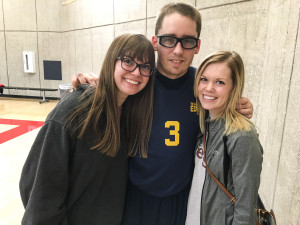
Risley said her older brother, Caleb, was diagnosed with mental disabilities at a young age, but she did not notice any difference until she was older.
“When I reached a certain age – I think it was close to probably second grade – that’s when it started clicking,” Risley said. “He has been one of the most amazing big brothers that you can have. He has been very protective and loving. He’s probably the biggest servant I know.”
Thomas’ older brother, Matthew, was diagnosed with autism at the age of three.
“When I was young, for a long time I felt like no one else knows what it’s like to grow up with someone who has autism, and then you see all of these different people and they’re so nice,” Thomas said. “Everyone is so accepting and loving, and just the nicest and sweetest people that you’ve ever met in your life.”
According to both Thomas and Risley, growing up with siblings who had special needs was both challenging and encouraging.
“I’m kind of ashamed of this, but growing up there are times when you are self-conscious about what people will think about you and your brother because they don’t always understand and they don’t know how things work, which is fine – I don’t blame them for that,” Risley said. “But it has made me grow so much because I’m able to see things differently. Because he has shaped me into who I am, I want to serve along beside him.”
Thomas said he could recall specific situations that he would consider “embarrassing”, but now Thomas said he is glad his brother is who he is.
“I remember in fifth grade and being in the cafeteria and he would start yelling Alice in Wonderland quotes at me,” Thomas said. “I remember being embarrassed and not understanding it, but one day everything just made sense. My brother is special and I’m so glad that I get to experience this type of thing.”
According to Thomas, Matthew has been involved with the Special Olympics since he was in elementary school. He continued his involvement with Special Olympics throughout high school and is still involved today at the age of 23 through the Pathways program in Tulsa.
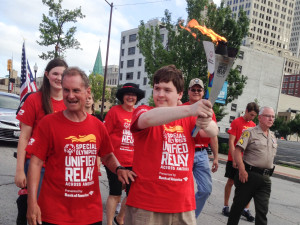
“I was never really an athlete, but I had a lot of friends with older brothers who were these superstar athletes,” Thomas said. “It was cool because I got to have that, too. I got to say that my brother was a great athlete.”
According to its website, Special Olympics “transforms lives through the joy of sport, every day, everywhere for those with intellectual disabilities.” Thomas said that Special Olympics has also transformed the lives of those who are indirectly affected by special disabilities.
“You get to meet all of these families who have gone through what you have gone through,” Thomas said. “You meet siblings of people who have autism and you get it. We’re kind of like in on the way life has been through us. It’s just a great thing.”
According to Risley, Caleb has participated in bowling, basketball and bocce ball through .
“He actually got a medal for bowling, was for Area,” Risley said. “Now he will go on to Regionals, and later on in the spring he will do 3-on-3 basketball.”
As the youngest of three in her family, Hannah said that the sibling roles are similar to other families’, but not entirely the same.
“We have those typical birth order behaviors, but we also have a mixture of other things,” Risley said. “In many ways Sarah is actually the oldest child and Caleb is the youngest. Sarah and I are very nurturing to Caleb and are the caregivers, but then you can turn right around and Caleb is the big brother, the oldest child and he’s going to take care of everything. It’s very fun because we get to play these different roles.”
According to Thomas, what previously embarrassed him about his brother has led to the most personal growth and strengthened the bond between him, Matthew and their older sister.
“When I first left for school he didn’t really understand,” Thomas said. “In Blues Clues, you know how Steve is the main dude, and he leaves to go to college and is replaced by – I think his name is Joe. They day I left for school, he made me and my family reenact that scene.”
Both Thomas and Risley said that they each found blessings in growing up with a sibling with mental disabilities, giving them opportunities to see what both referred to as, “a different side of the world.”
“I think there is something special about knowing someone who has special needs, and they can show you a whole new part of the world,” Risley said. “I’m very grateful for that.”
For more information about Special Olympics Oklahoma, visit their website.

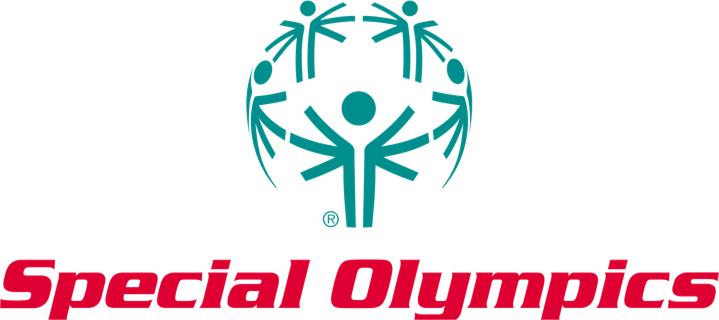










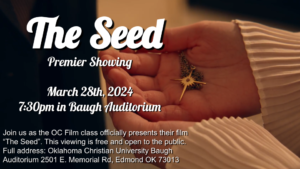






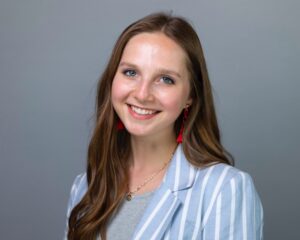

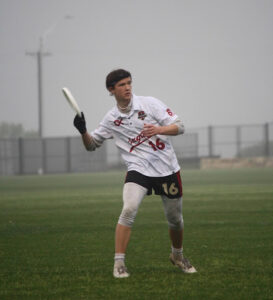


Be First to Comment